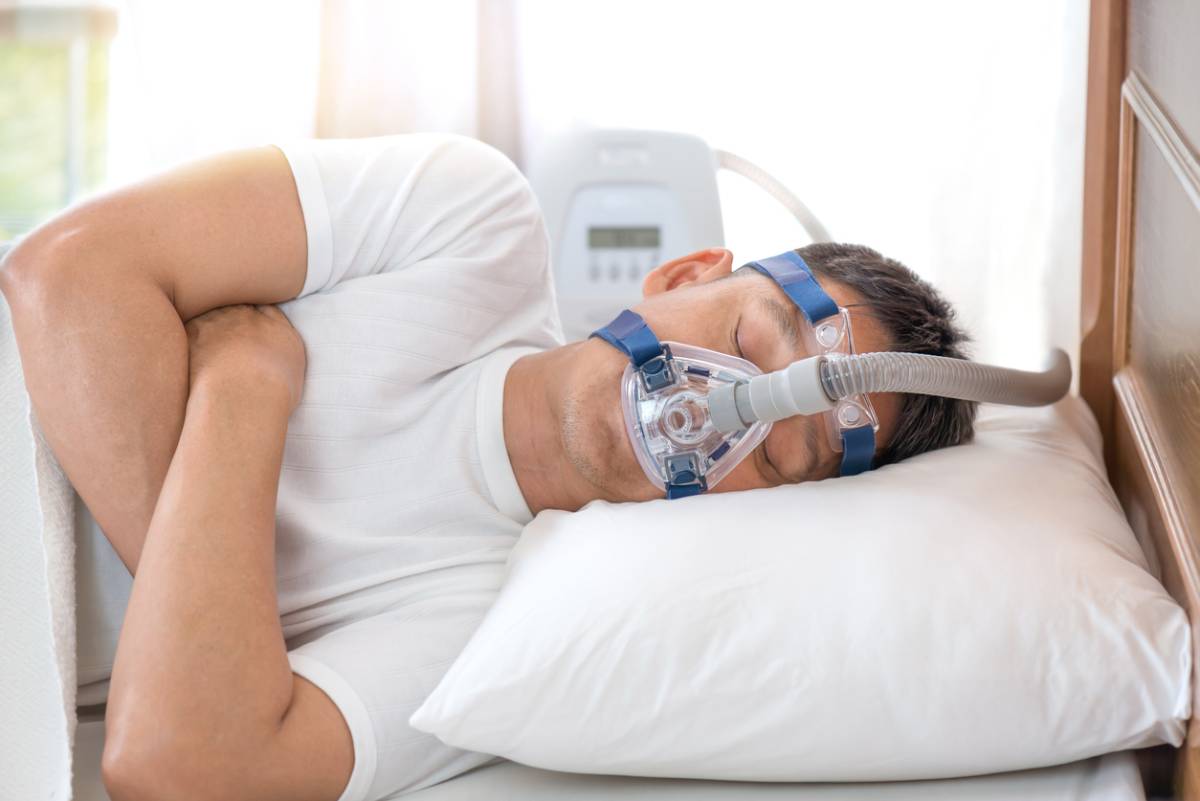Sleep apnea is a serious sleep condition that disrupts your sleep. It is characterized by your breath repeatedly stopping throughout the night. Sleep apnea is incredibly common. In fact, roughly 30 million people have the condition. However, only 6 million people have received a proper diagnosis. The disparity between those showing signs of having the condition and those properly diagnosed is alarming because sleep apnea requires immediate treatment. If left untreated, it can lead to more severe health issues, including heart disease, stroke, and a decrease in one’s overall quality of life. Once the condition is diagnosed, there are several effective treatment options. Below, you will find how to treat sleep apnea.
How to Treat Sleep Apnea
If you struggle with sleep apnea, a sleep hygiene specialist can help you get a restful night’s sleep. Consider the following strategies to effectively manage sleep apnea.
Continuous Positive Airway Pressure Therapy
Continuous positive airway pressure (“CPAP”) therapy is one of the most common treatments for moderate to severe sleep apnea. It is highly effective and can help restore a restful night’s sleep for those with sleep apnea. The machine delivers constant air pressure through a mask. This pressure ensures that your airway stays open throughout the night so your sleep is not disrupted. The CPAP machine improves your breathing and sleep quality. It also reduces the risk of sleep apnea-related complications, such as heart disease or high blood pressure.
Weight Management
Weight management is necessary for your overall health. Excess weight puts extra pressure on your body and can lead to several chronic health conditions. If you are overweight with excess weight around your neck, it can worsen sleep apnea because the excess weight can narrow your airway and make breathing more difficult. Losing weight can reduce your symptoms and, in some cases, eliminate the need for the CPAP machine.
Avoid Certain Substances
Alcohol, sedatives, and smoking can worsen sleep apnea symptoms. Alcohol and sedatives actually relax the muscles in your throat and increase the risk of airway blockages when you sleep. It is advisable to avoid alcohol and other sedatives entirely if you have sleep apnea. However, if you consume them, avoid consuming them in the evening before bed.
Smoking is another habit to avoid. It is incredibly bad for your overall health and can also worsen your sleep apnea symptoms. It increases inflammation in your airways, ultimately causing more disruptions in your breathing while you sleep. Avoid smoking entirely to improve your sleep and reduce your symptoms.
Adjust Your Sleep Position
Changing your sleep position can improve your sleep apnea symptoms. Avoid sleeping on your back if you have sleep apnea. Sleeping on your back can cause your tongue to collapse into your airway. Sleep on your side to ensure your airway stays clear. Some people also benefit from positional aids during sleep. Special pillows and other devices can keep you from shifting in your sleep and reduce your sleep apnea symptoms.
Addressed Underlying Conditions
If an underlying condition is exacerbating your sleep apnea, it is critical to address the condition. Certain conditions can negatively impact your health and exacerbate your symptoms. Common underlying conditions include nasal congestion, gastroesophageal reflux disease, and hypothyroidism. Diagnosing and treating these issues can reduce your sleep apnea-related symptoms.
Work With A Skilled Sleep Hygiene Specialist
If you are displaying symptoms of sleep apnea, get a diagnosis from a skilled sleep hygiene specialist. Working with a professional can ensure that you get an effective treatment plan customized to meet your unique needs. A sleep apnea specialist can provide the ongoing care and treatment necessary to manage this chronic condition. Contact Dr. Mayank Shukla and his team at the Asthma & Sleep Institute today to start treating your sleep apnea.

